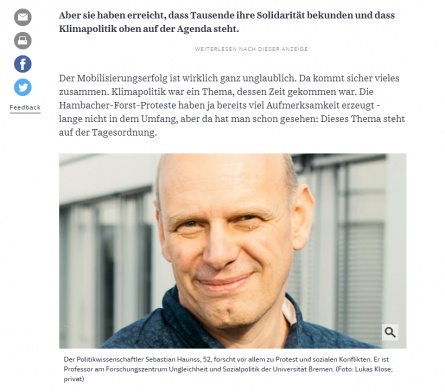
"SZ: Let's say I'm really annoyed about the reconstruction of Munich Central Station. How would I have to protest to stop it?
Sebastian Haunss: Well, there is no clear answer to that from a scientific perspective. Previous studies, for example of the anti-nuclear movement, have shown that a large and long-lasting mobilisation is important, the support of political elites and a majority of the population in favour of the cause. It is helpful to have an open opportunity structure, i.e. opportunities to be heard in the political system. The German system is relatively open because the municipal, federal and national levels each provide access. In the case of the anti-nuclear movement, Chernobyl was also an event that contributed to its success. But there is very little overarching research on conditions for success - and the research that exists cannot be applied to any protest.
So: If many people join in, if others approve of the cause and if a few politicians listen ...".
For copyright reasons, we cannot reproduce the entire interview on this page. You can find the complete text here at Süddeutsche Zeitung (in German only).
Contact:
Prof. Dr. Sebastian Haunss
CRC 1342: Global Dynamics of Social Policy
Mary-Somerville-Straße 7
28359 Bremen
Phone: +49 421 218-58572
E-Mail: sebastian.haunss@uni-bremen.de










